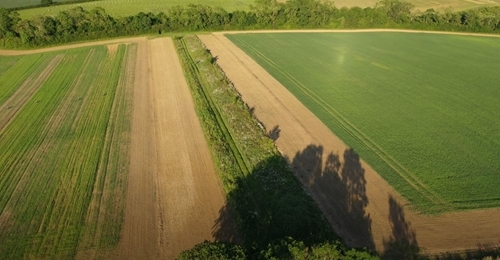
It is a time of change at the GWCT’s Allerton Project, as summer gives way to autumn and the focus of research shifts again for the upcoming winter of both data collection and ongoing analysis.
This summer, we counted songbird territories across the farm – a task that we carry out every five to six years, to give a good indication of how the rarer songbirds are doing on the farm. This, in conjunction with our annual counts, give us a snapshot of how songbirds are doing over time at Allerton. The actual counts are now completed, and the analysis awaits.
Two large projects are coming to an end here – we have been part of the EU funded SoilCare project, as well as the AHDB funded Soil Biology and Soil Health project which are both nearing their conclusions. The numbers are still being crunched and the findings will make their way out in due course, but these two important projects have advanced our knowledge of soil biology and health, and how it responds to farming techniques. With climate change, carbon storage and sustainability being at the forefront of our collective attention – focussed this year by COP26, but long having been in urgent need of the awakening that is now happening – a better understanding of how farming practices impact the soils is critical for our future.
The aim of SoilCare was to identify and evaluate promising soil-improving techniques that increase the profitability and sustainability of agriculture across Europe. Here at Allerton, we looked at alleviating compaction in agricultural soils, specifically for direct drilling compared to ploughing, with some interesting findings also about deep-rooting grasses. The Soil Biology and Soil Health project looked at soil function and restoration. We look forward to sharing the final results of these two projects as soon as we can, but for now the analysis and write-up continues.
Our long-term agroforestry project is ongoing, as the trees become more established and we learn practical lessons along the way (such as how many the sheep will eat, and how to prevent this!). This next month is the season of data collection in the agroforestry pasture field, examining soil compaction and infiltration, sward volume and light penetration to understand how they are affected by different tree densities in the system.
Also continuing from strength to strength is the Water Friendly Farming project, which has now been ongoing for nearly ten years, and we are delighted that we have recently been granted funds to extend this through to 2027. Long-term experiments of this kind are critical when we study wide scale, complex systems and with funding for scientific research under threat from many sides, each research grant or donation is more important than ever in the continuation of such projects. Over the winter, our Ecologist John Szczur will be visiting the sampling sites in each of our study catchments, monitoring water quality weekly and thus maintaining the continuity that is the keystone of long-standing projects such as this.
With all of these different projects progressing at once, not to mention studying pollinators and improving nutrition by feeding willow leaves to lambs, there is never a dull moment! We will share more updates and information on all of these exciting projects. The continued hard work that goes on, now as ever at The Allerton Project, will keep chipping away at those all-important questions about how to produce our food in a more sustainable way, and contribute to the steady flow of knowledge that will improve our agricultural systems in the future.